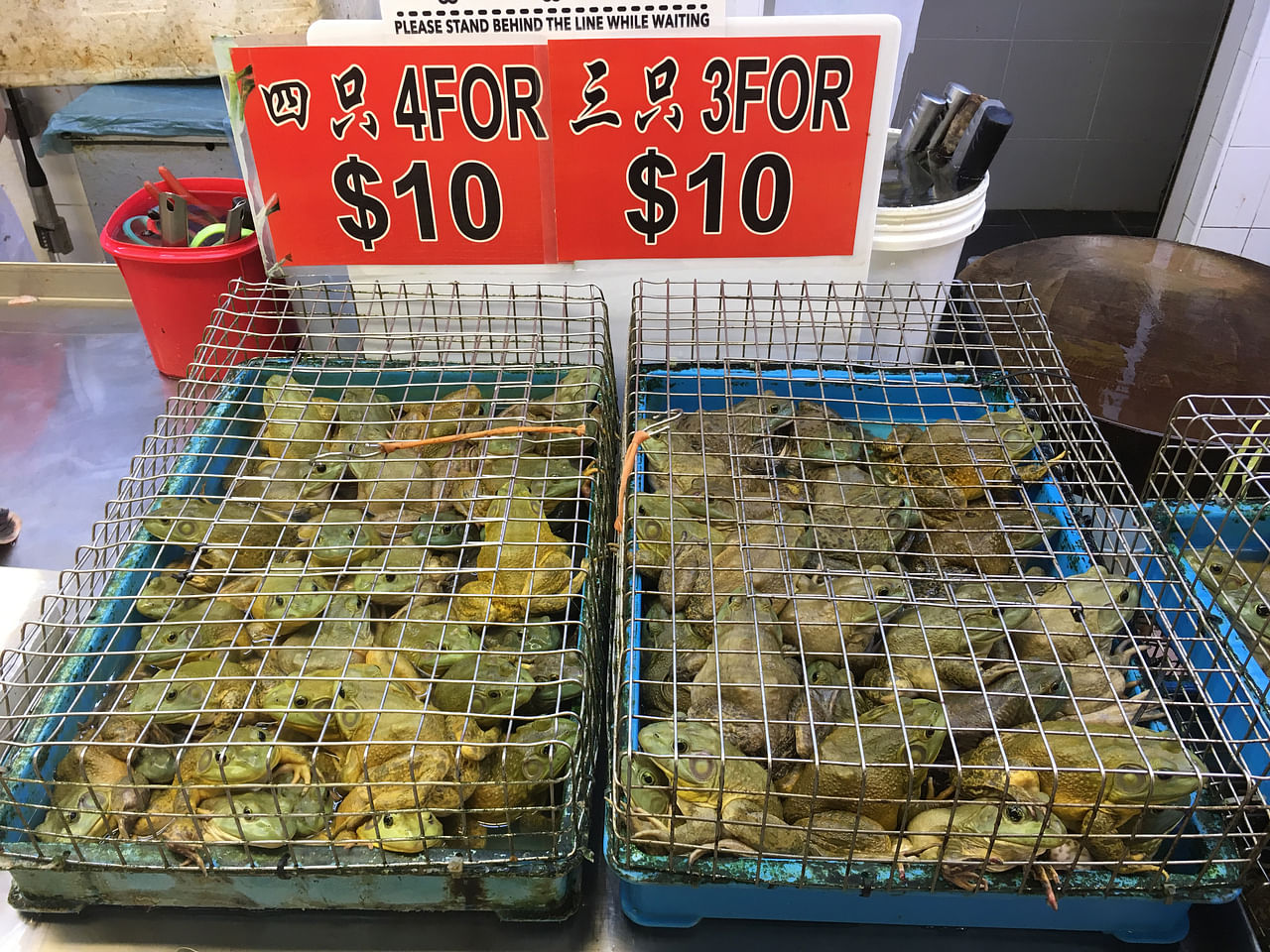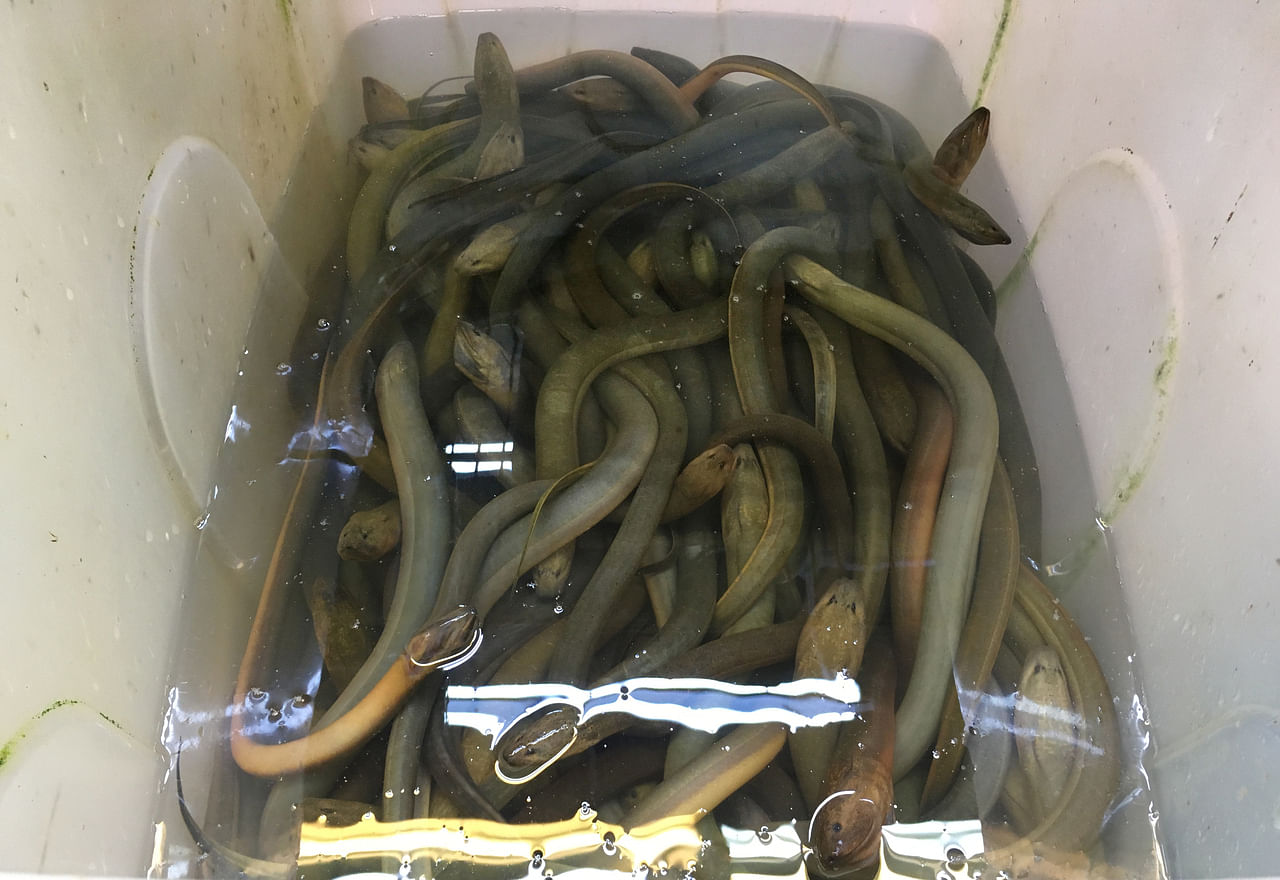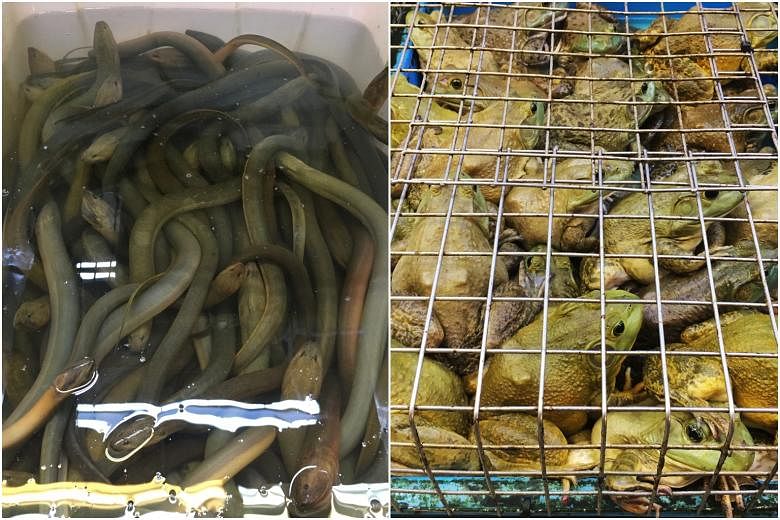SINGAPORE - It is not the usual wet market in the basement of the Chinatown Complex in Smith Street. Here, customers can buy live animals such as soft-shell turtles, bullfrogs and freshwater eels, have them slaughtered, and take them home to cook for dinner.
In recent weeks, wet markets like the one at Chinatown Complex have come under global scrutiny due to the suspected links between the current Covid-19 pandemic that has claimed more than 120,000 lives worldwide and a live seafood market in Wuhan where live and dead creatures such as bats, civets and snakes are sold as food.
In response to queries from The Straits Times, the Singapore Food Agency (SFA) said last week that the slaughter of live turtles, frogs and eels at markets and food stalls are allowed as long as market stall vendors comply with the requirements under the Environmental Public Health Act, which covers food safety and hygiene. This includes ensuring stall cleanliness and proper storage of food, said the SFA.
The agency added that action will be taken in the case of violations, and that it has not detected any infringements in its regular inspections so far.
Scientists have found that the Sars-CoV-2 virus which causes the Covid-19 disease in humans is closely related genetically to coronaviruses isolated from bat populations, and that it is likely that the transmission of the virus to humans occurred via an intermediate animal host - which has yet to be identified.
Dr Richard Thomas, a spokesman for the wildlife trade monitoring network Traffic, told ST that while the origin of the Sars-CoV-2 virus is unclear, there is widespread speculation of a connection to this trade in wild animals.
In February, China announced that it would immediately ban the trade and consumption of wild animals nationwide to battle against the outbreak - a decision that followed an initial suspension imposed in January.
Earlier this month, some 200 conservation groups from all over the world also called on the World Health Organisation (WHO) to implement a blanket ban on live wildlife markets worldwide in an open letter, citing the markets' "proven threats to human health" as a reason.
Said Dr Thomas: "The critical thing to bear in mind is that the disease risk comes from the keeping of animals in cramped conditions in close proximity to people - the conditions under which viruses are enabled to cross the species barrier and infect people."
Professor Paul Tambyah, president of the Asia Pacific Society of Clinical Microbiology and Infection, said that there is always a risk of infections from animals when hygiene standards are not high. He added the risk is reduced in Singapore, where the standards are "generally high".
"However, where there are lapses, our weather makes it easy for food-borne illnesses to thrive and spread," said Prof Tambyah.
When ST visited the wet market at Chinatown Complex last Tuesday (April 14), dozens of American bullfrogs were seen packed in overcrowded cages at one stall. The cages appeared to be lined with animal waste.
At least 20 freshwater eels were held inside a plastic box filled with water at the same stall, with barely any space for the creatures to move.
In an earlier trip to the market last month, ST also saw that Asiatic soft-shell turtles, which are reportedly wild-caught, were held in tanks on display for sale at the stalls.


Wildlife rescue group Animal Concerns, Research and Education Society (Acres) said that based on its investigations carried out in March, it found that the slaughter of live animals at the wet market stalls took place in close proximity to the meat sold to the public and that it poses a serious risk of disease transmission.
Acres noted that the soft-shell turtles displayed were found with rostral abrasions - which resulted from the creatures rubbing their noses against the nets they were kept in. Open wounds such as these can easily develop into infections, said the organisation.
It added that the live animals in its investigations were found to have been starved from the time they were brought to the stall, till the point of slaughter. This was reportedly to prevent "bad odours" during the slaughtering process, according to stallholders themselves.
Said a spokesman for Acres: "In addition to welfare concerns, physiological stress arising from hunger and overcrowded conditions often suppresses the animals' immune system, increasing potential for disease outbreaks and spillovers."
Acres said that together with the Society for the Prevention of Cruelty to Animals (SPCA) Singapore, it is appealing to the National Parks Board and SFA to restrict all slaughter to premises regulated by the agencies, and end the selling of live animals at public wet markets and food stalls.
Dr Jaipal Singh Gill, executive director of SPCA, said: "Just as it was done for poultry, we are asking for aquatic animals to be humanely and hygienically processed for food in well-regulated premises, and for an end to the display and sale of live animals in food establishments."












